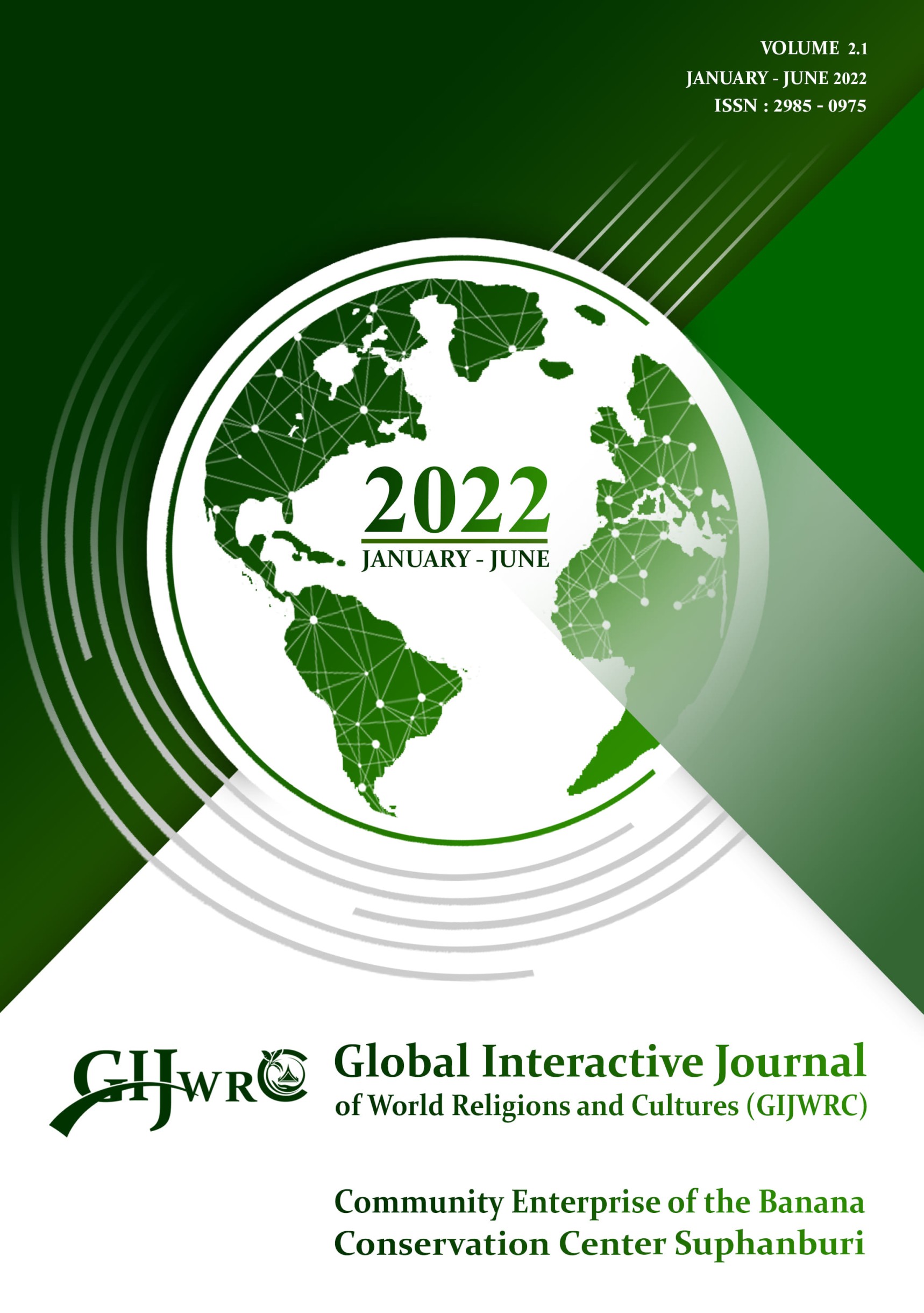THE INTEGRATION OF THE GOOD GOVERNANCE FOR THE GOOD LIFE OF THE THAI SOCIETY
Main Article Content
Abstract
This research was to investigate the integrating governance principles for good life achievement in the current Thai societies and to find directions to back-up its accomplishment. As such, in-depth interview, focus groups, and non-participatory observation were qualitatively employed for data collection during July-December 2019. The ten interviewees comprising two each with the entitled monks, scholars, laities, Buddhapanya Sri Thawarawadee Buddhist College postgraduates and undergraduates mostly prioritized equity and inclusiveness (opportunities to improve wellbeing) while human rights was the last priority and proposed Rājadhamma 10 to replace the existing governance. The four focus groups each assembling an entitled monk, a scholar, a laity, similarly prioritized as the interviewee group. In Rājadhamma 10, every focus group prioritized Attha (advantageous welfare) followed by Dhamma-vepulla (life value enhancement); Kāmabhogīsukha (happy family life) and Vimokkha (sense of public). With non-participatory observations, the entitled monks were prone to Buddhist Dhamma and Ethics. The rest partly agreed with the them but weighed more on rule of law, transparency, participation, accountability and cost-effectiveness. Some voiced governance indicators, application process and publicity. Two directions were found, first the imperative participative leadership (democratic) training and second, behaviorism and cognitivism training since the former was responsive to rule of law while the latter was the mindfulness and wisdom development welfare equality, social responsiveness and why human rights were least recognized so on.
Article Details
References
Etzioni, Amitai. (2008). The Good Life: An International Perspective. Blanca Muñoz, Archipiélago (detail), pp.379-391; (web.message). Feb. 26, 2020, thoughtco.com/what-is-the-good-life-4038226.
Sheng, Yap Kioe. (2009 July 10). Chief, Poverty Reduction Section. Re: What Is Good Governance? UNESCAP: Thailand (URL.pdd.). Retrieved from https://www.unescap.org/resources/what-good-governance.
Tatarenko, Alina. (2008). 12 Principles of Good Gover-nance. Bashkitë për në Evropë/ Municipalities for Europe. (Web. Message). Retrieved from http://www.bpe.Al/en/12-principles-good-governance.
Prathan Suwannamongkol. (2015). Public Adminis-tration and the Creation of Good Governance. Bangkok: King Mongkut Institute, p. 61.
Ratwatte, Charitha. (2014 February 2). Ten Buddhist Principles of Good Governance. Daily FT (Blogger’s Note) Retrieved from https://www.thinkworth.wordpress.com/2014/02/12/ten-buddhist-principles-of-good-governance/; J.V. 378.
Phra Brahmagunabhorn, (P.A. Payutto). (2013). Dictionary of Buddhism. Suan Luong, Bangkok: Office of Plidham Publishing under Pet and Home Co. Ltd., p. 240-241.
Varma, Chandra B. (2018, January). Good Governance: The Buddhist Perspective. University of Hyderabad - Asian Renaissance: A Global Journal of Asian Cultures (ISSN 2456-9534), Volume 2.1, January 2018: Pages pp.53-74 Retrieved from https://www.researchgate.net/publication/329116648.
Bangkok Post Reporter. (2020). Re: Poverty on the rise again as economy slows: World Bank sounds alarm on inequality. Bangkok Post. 6 March 2020 [web message]. Retrieved from https://www.bangkokpost.com/thailand/general/1872529/poverty-on-the-rise-again-as-economy-slows.
Nattress, Daniel et al. (2009). “Improved Storage Stability of Meal Ready-to –Eat Cheese Spread Under Heat Stressing Conditions.” Technical Report Natick/TR-10/003, US Army Natick Soldiers RD&E Centre, p.3.
Steven, John and Christy, Jana. (2012). A Rule is to Break: A Child's Guide to Anarchy (Wee Rebel). Manic D Press, Inc. November 20, 2012.
Most. Ven. Phra Brahmapundit, Chief Editor. (2017). Common Buddhist Text: Guidance and Insight from Buddha on Society and Human Relationships, the principle of god governance that ensure the stability of the state. Th.29. Phra Nakhon Sri Ayutthaya: Mahachulalong-kornrajavidyalaya University, pp.181.
Whitton, Howard. (2001). “Implementing Effective Ethics Standards in Government and the Civil Service”. Transparency International, February 2001, pp.1-12.
BBC reporter. (2009). Re: Buddhism at a glance. BBC. [web message]. Retrieved from https://www.bbc.co.uk/religion/religions/buddhism/ataglance/glance.shtml.
Araiba, Sho. (2019). Current Diversification of Behavior-ism. Perspectives on Behaviour Science. (10 June 2019). https://doi.org/10.1007/s40614-019-00207-0.
Gregoire, Carolyn. (2017). Re: Wellness: 7 Habits of Natural Leaders. Huffpost. [web.message] December 6, 2017. Retrieved from https://www.huffpost.com/entry/traits-that-make-a-leader_n_5959298.


